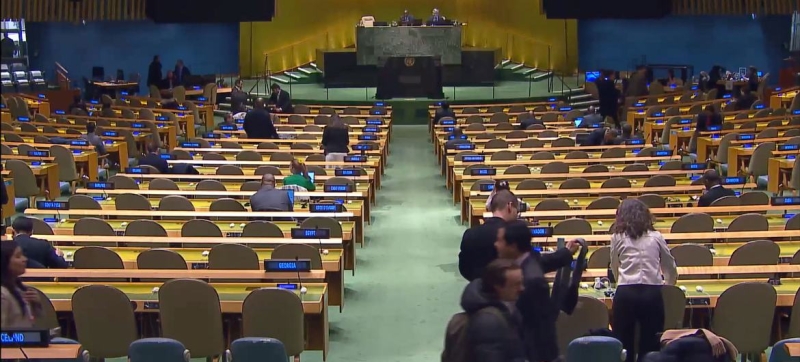
Meeting of the UN General Assembly. Photo from the archive The UN General Assembly discussed the case of Russia and China using the right of veto in the Security Council International Law
The plenary meeting of the UN General Assembly on Monday discussed the recent use of the veto by two of the five permanent members of the Security Council. Russia and China took advantage of this right on March 22 when voting on a draft resolution on Gaza proposed by the United States.
Opening the meeting, the President of the General Assembly, Dennis Francis, again called for a ceasefire in the sector. He recalled that in 2022, delegates to the 76th session of the UN General Assembly adopted a resolution that gave the Assembly the opportunity to meet for 10 days after a permanent member of the Security Council vetoes a resolution to discuss the issue and hear explanations of the reasons such a vote.
The five permanent members of the UN Security Council – Great Britain, France, the USA, China and Russia – can block any decision of the Security Council simply by voting against it. In the General Assembly, where all UN member countries are represented, no one has such a right.
According to the Chairman of the General Assembly, the opportunity to discuss cases of the use of the veto contributes to the rapprochement of two key UN bodies – the General Assembly and the Security Council, which should complement each other.
Read also:
The UN General Assembly discussed the use of the US veto power in the Security Council
“The authors of the initiative to discuss the use of the veto power in the Security Council by the General Assembly undoubtedly conceived it as a kind of way of censure and drawing attention to the alleged abuse of permanent members of the UN Security Council,” said First Deputy Permanent Representative of Russia to the UN Dmitry Polyansky, speaking on Monday at the General Assembly. “Today, however, we are dealing with a situation where the veto of Russia and China clearly prevented the adoption of a draft resolution, which not only was not aimed at stopping the hostilities in Gaza, but essentially gave Israel carte blanche to continue its inhumane and operation in this enclave, which is contrary to international humanitarian law.” law, as well as the purposes enshrined in the UN Charter,” and the desire to maintain the authority of the Security Council. “The deep concerns of the Arab states and their dissatisfaction with the draft resolution were also taken into account,” the diplomat added.
